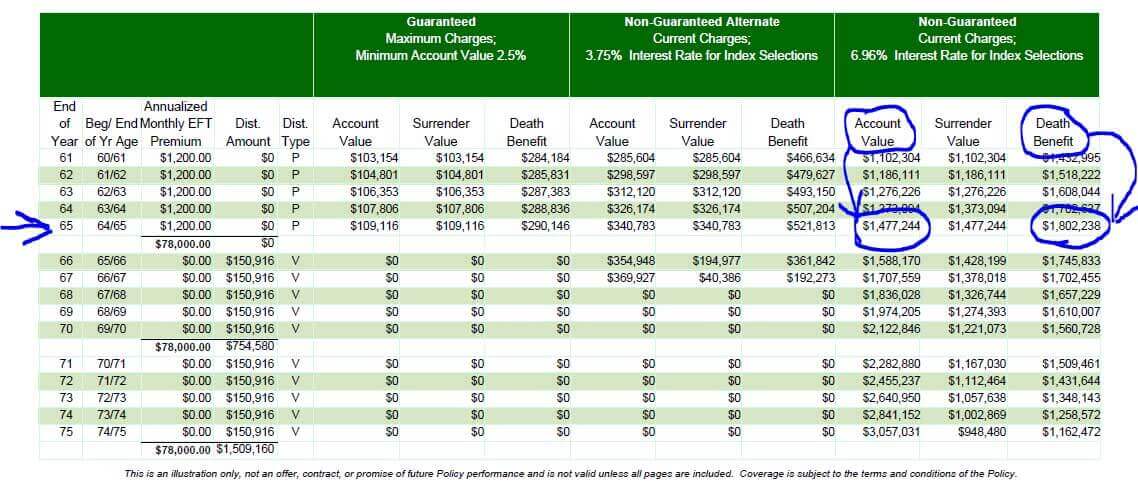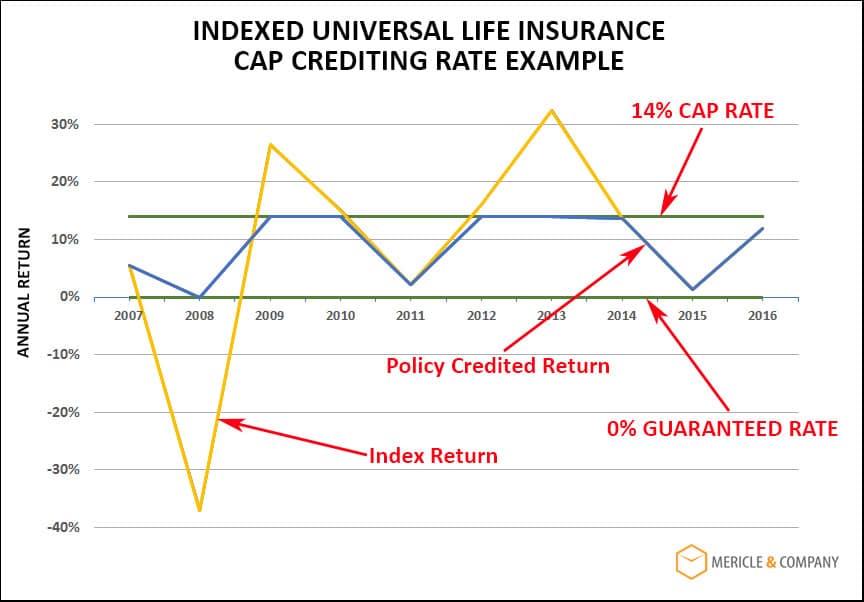All Categories
Featured
Table of Contents
1), usually in an attempt to beat their category standards. This is a straw male disagreement, and one IUL folks enjoy to make. Do they compare the IUL to something like the Lead Total Amount Supply Market Fund Admiral Show no load, an expense ratio (EMERGENCY ROOM) of 5 basis factors, a turn over proportion of 4.3%, and a remarkable tax-efficient record of circulations? No, they contrast it to some dreadful proactively managed fund with an 8% tons, a 2% ER, an 80% turn over ratio, and an awful document of short-term resources gain distributions.
Shared funds frequently make yearly taxable distributions to fund proprietors, even when the worth of their fund has actually decreased in worth. Common funds not only require revenue coverage (and the resulting yearly taxation) when the common fund is increasing in value, but can additionally enforce earnings taxes in a year when the fund has decreased in value.
That's not exactly how common funds work. You can tax-manage the fund, collecting losses and gains in order to lessen taxable distributions to the capitalists, however that isn't in some way mosting likely to alter the reported return of the fund. Just Bernie Madoff types can do that. IULs prevent myriad tax catches. The possession of mutual funds may call for the common fund owner to pay approximated taxes.

IULs are very easy to place so that, at the owner's death, the beneficiary is exempt to either earnings or inheritance tax. The exact same tax obligation reduction strategies do not function virtually as well with shared funds. There are various, frequently costly, tax catches associated with the moment trading of shared fund shares, catches that do not apply to indexed life Insurance coverage.
Chances aren't extremely high that you're going to be subject to the AMT as a result of your common fund distributions if you aren't without them. The remainder of this one is half-truths at best. For instance, while it holds true that there is no income tax because of your beneficiaries when they acquire the profits of your IUL policy, it is additionally true that there is no earnings tax obligation due to your heirs when they inherit a shared fund in a taxable account from you.
Universal Life Insurance Rates
There are much better methods to prevent estate tax concerns than buying financial investments with low returns. Common funds may trigger earnings taxes of Social Safety benefits.

The growth within the IUL is tax-deferred and may be taken as free of tax income using car loans. The policy proprietor (vs. the shared fund manager) is in control of his or her reportable income, hence enabling them to decrease or perhaps eliminate the taxation of their Social Safety and security benefits. This set is terrific.
Here's one more very little problem. It holds true if you buy a mutual fund for claim $10 per share just prior to the distribution day, and it disperses a $0.50 circulation, you are after that mosting likely to owe tax obligations (probably 7-10 cents per share) in spite of the reality that you haven't yet had any gains.
In the end, it's truly concerning the after-tax return, not just how much you pay in tax obligations. You're additionally most likely going to have even more money after paying those taxes. The record-keeping requirements for possessing shared funds are dramatically extra complicated.
With an IUL, one's documents are kept by the insurance provider, copies of yearly declarations are mailed to the owner, and distributions (if any) are amounted to and reported at year end. This set is also sort of silly. Certainly you need to keep your tax obligation records in instance of an audit.
Universal Life Insurance Costs
All you have to do is push the paper into your tax folder when it shows up in the mail. Rarely a factor to buy life insurance policy. It's like this person has actually never ever purchased a taxable account or something. Common funds are generally component of a decedent's probated estate.
In enhancement, they are subject to the delays and expenditures of probate. The proceeds of the IUL plan, on the other hand, is constantly a non-probate circulation that passes beyond probate straight to one's named beneficiaries, and is as a result exempt to one's posthumous lenders, undesirable public disclosure, or similar hold-ups and costs.
Medicaid disqualification and life time revenue. An IUL can provide their proprietors with a stream of income for their whole life time, regardless of exactly how long they live.

This is advantageous when organizing one's events, and transforming properties to earnings before an assisted living home confinement. Shared funds can not be converted in a comparable way, and are nearly constantly considered countable Medicaid properties. This is another dumb one advocating that poor people (you know, the ones who require Medicaid, a federal government program for the poor, to spend for their assisted living facility) should make use of IUL rather than common funds.
Life Insurance Tax Free Growth
And life insurance looks dreadful when compared rather against a retired life account. Second, people who have money to buy IUL over and past their pension are going to have to be awful at managing money in order to ever get Medicaid to spend for their nursing home expenses.
Persistent and terminal ailment rider. All plans will certainly allow an owner's simple access to money from their policy, commonly forgoing any surrender charges when such people experience a significant health problem, require at-home care, or become restricted to an assisted living facility. Common funds do not provide a comparable waiver when contingent deferred sales costs still apply to a mutual fund account whose proprietor needs to offer some shares to fund the expenses of such a remain.
Veterans Universal Life Insurance
You obtain to pay more for that advantage (biker) with an insurance policy. What a large amount! Indexed global life insurance policy gives survivor benefit to the recipients of the IUL proprietors, and neither the proprietor nor the recipient can ever before shed cash as a result of a down market. Common funds provide no such guarantees or fatality advantages of any kind of kind.
I certainly don't require one after I reach monetary independence. Do I want one? On standard, a buyer of life insurance coverage pays for the true price of the life insurance policy benefit, plus the expenses of the plan, plus the earnings of the insurance policy business.
Index Universal Life Insurance Calculator
I'm not completely sure why Mr. Morais tossed in the entire "you can not lose money" once again right here as it was covered quite well in # 1. He simply desired to repeat the very best marketing point for these points I intend. Once again, you don't lose nominal dollars, yet you can shed genuine bucks, in addition to face severe chance expense as a result of low returns.

An indexed universal life insurance plan owner might trade their plan for a totally various plan without activating revenue tax obligations. A shared fund owner can not relocate funds from one shared fund firm to an additional without offering his shares at the former (therefore setting off a taxable occasion), and redeeming new shares at the latter, typically based on sales fees at both.
While it holds true that you can trade one insurance plan for another, the factor that individuals do this is that the first one is such a horrible policy that even after acquiring a new one and experiencing the very early, negative return years, you'll still come out ahead. If they were marketed the appropriate policy the very first time, they should not have any type of wish to ever before trade it and experience the early, adverse return years once more.
Table of Contents
Latest Posts
Eiul Life Insurance
Aig Index Universal Life Insurance
Universal Term Life
More
Latest Posts
Eiul Life Insurance
Aig Index Universal Life Insurance
Universal Term Life